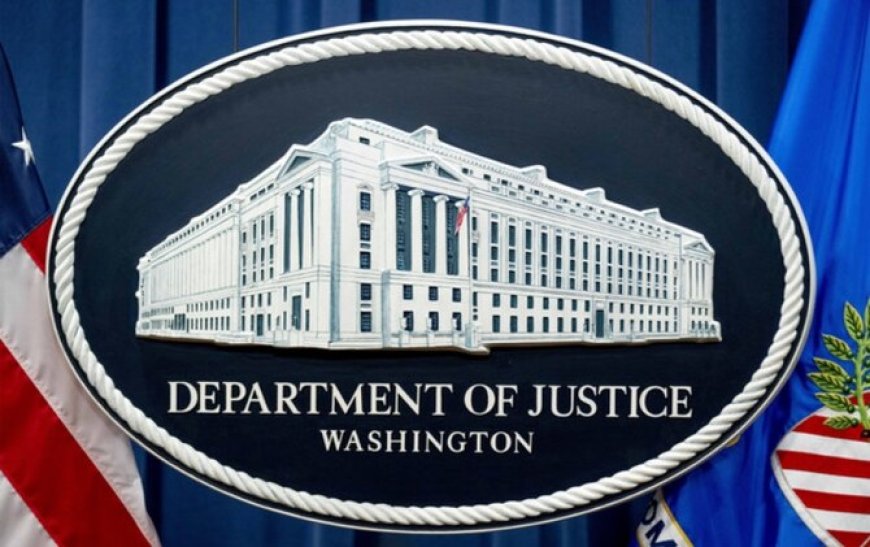British man charged in U.S. over $3.75 million "Hack-to- Trade" scheme

In a major worldwide cybersecurity and financial crime case, U.S. authorities have accused 39-year-old British man from London Robert Westbrook of planning a sophisticated hacking operation allowing him to illegally profit $3.75 million from stock trading based on stolen confidential company information. Following his detention earlier this week, Westbrook's extradition from the United Kingdom—where he was arrested—is being sought by the U.S. Department of Justice (DOJ) for allegations of securities fraud, wire fraud, and many counts of computer fraud.
Between January 2019 and May 2020, Westbrook reportedly obtained access to the computer systems of five firms, focusing especially on top executive email accounts. He traded stocks and options ahead of significant financial announcements using nonpublic knowledge about the impending earnings reports of the corporations obtained by hacking into these accounts. By taking advantage of stock price swings following these results announcements, the illicit sales let Westbrook collect millions.
The DOJ's criminal indictment, which was released on Friday in federal court in Newark, New Jersey, did not list the targeted organizations. Details disclosed in associated civil allegations submitted by the U.S. Securities and Exchange Commission (SEC) nonetheless point to well-known corporations like Tupperware, Guidewire Software, Tutor Perini, Murphy USA, and Lumentum Holdings. Although these companies—which range in business from software to construction and telecoms—were victims of Westbrook's hacking—they were not accused of any crime.
The Way the Scheme Played out
Charges state that Westbrook's actions included intercepting emails from executives and forwarding private correspondence to his own accounts. He configured automatic forwarding rules on these email accounts numerous times to guarantee a consistent flow of private financial data. This let him trade stocks and options predicated on upcoming earnings releases prior to public release.
Using anonymous email accounts, VPNs, and cryptocurrencies—including Bitcoin—Westbrook covered his traces and hidden his unlawful activity, according to authorities, describing the operation as a "sophisticated international hacking scheme". Jorge Tenreiro, acting chief of the Crypto Assets and Cyber Unit of the SEC, said Westbrook's methods reflected sophisticated cybercrime strategies meant to hide while manipulating financial markets for personal benefit.
Legal Consequences
Should extradition and conviction follow, Westbrook risks serious legal repercussions. Whereas each of the five computer fraud counts may result in up to five years behind bars, the securities fraud and wire fraud accusations each carry a potential punishment of twenty years in jail. Apart from the criminal prosecution, Westbrook is also dealing with a separate civil lawsuit from the SEC based on related allegations for securities infractions. His attorney isn't yet publicly known.
The DOJ's quest of extradition emphasizes the gravity of the matter and the rising global law enforcement agency collaboration to fight cross-border cybercrimes. This lawsuit arises at a time when hackers looking to benefit illegally from weaknesses in corporate cybersecurity are progressively compromising financial markets.
a More General Alert for Corporate Security
The Westbrook case reminds businesses on the need of safeguarding private financial information from mistakes. Although the five organizations engaged were not found to have any wrongdoing, their susceptibility to email hacking emphasizes the necessity of more robust cybersecurity policies—especially at the CEO level. Globally, financial markets depend mostly on digital infrastructure, hence companies in many different sectors have to be alert against cyberattacks and keep enhancing their defenses.
This case also shows how much U.S. officials now concentrate on combating financial crimes aided by technology. As the Westbrook inquiry shows, the SEC, which has strengthened its crypto assets and cyber branch, is enforcing more aggressively in this regard. The U.S. government wants to make clear by charging anyone who use cyber weaknesses for insider trading that crimes, no matter how advanced, will be greeted with strict legal punishment.
As the case unfolds, financial institutions, regulatory authorities, and the general public will probably pay close attention to the changing hazards presented by hackers aiming at markets for personal benefit.













































